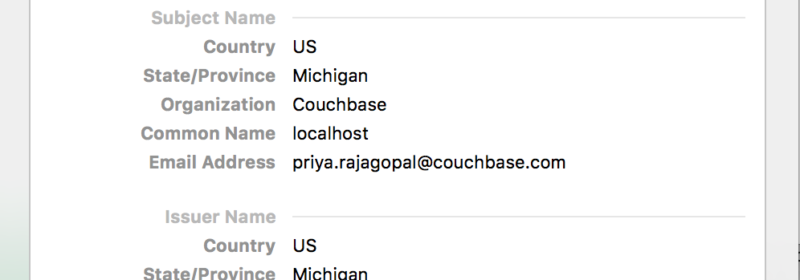Tag: TLS

Cloud-Native Certificates – De Facto Standards For Kubernetes
Couchbase uses TLS to ensure communication across the network is secure, preventing malicious third parties from eavesdropping or tampering with requests, for instance client requests, intercluster requests (node-to-node encryption) and intracluster requests (cross data center replication – XDCR). The latest...

Couchbase Server 7.0.2 Enforce TLS, HSTS & Enforce IP Address Family
In this blog post, I will introduce three new features in Couchbase Server 7.0.2 (“Server”) to help administrators deploy Couchbase Server in a secure manner: Enforce TLS, HSTS, and Enforce IP Address Family. When deploying a Couchbase Server cluster, a...

TLS 1.3 encryption arrives to Couchbase Server 7.0
The Couchbase Server 7.0 Beta is now available with some additional enhancements to strengthen the security of the platform. Couchbase uses TLS encryption across our portfolio to ensure communication across the network is secure, meaning that outside parties cannot eavesdrop...

Autonomous Operator 1.2.0 Public Connectivity
In my previous article I discussed—from a high level—the new Public Connectivity feature in Autonomous Operator 1.2.0. This was intentionally an abstract overview in order to coax the user to learn about the joys of DDNS, TLS and layer 3...

Certificate Pinning in your Couchbase Mobile iOS App
Communication between Couchbase Lite and Sync Gateway is encryped and secured using SSL/TLS. The SSL/TLS protocol relies on a Public Key Infrastructure (PKI) mechanism using a X.509 certificate to establish the Sync Gateway server’s identity. The certificate is typically issued/signed...

Securing Couchbase Server using Let’s Encrypt x.509 Certificates
Summary Securing data and access to data for application data is an important step in securing your environment for client applications and database protection in any sized environment. One of the simplest methods to secure data is the access path...